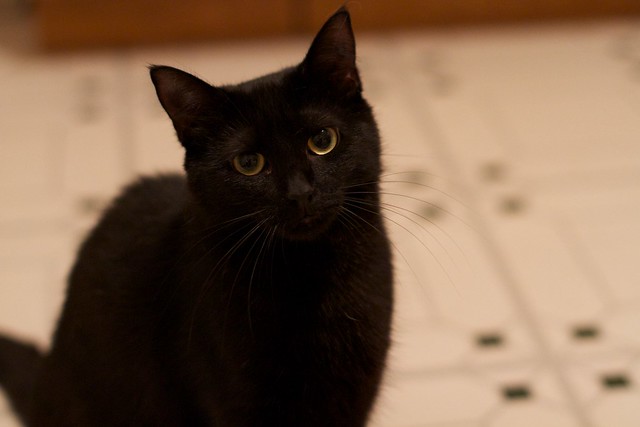Words for white in Celtic languages.
Words marked with a * are reconstructions.
| Proto-Celtic | *windos [ˈwin.dos] = white |
|---|---|
| Gaulish | *windos/uindos = white |
| Old Irish (Goídelc) | finn [fʲin͈] = white, bright, blessed |
| Middle Irish (Gaoidhealg) | finn = white, bright, lustrous, fair, light-hued (complexion, hair, etc), handsome, blessed, fair, just, true finnaid = make white, becomes white finne = fairness, brightness finnemail = whitish |
| Irish (Gaeilge) | fionn [fʲũːn̪ˠ/fʲɨ̞n̪ˠ] = white, fair-haired, blond, bright, clear; to whiten, make white, clear, brighten, scorch, singe, set alight finne = whiteness, fairness |
| Scottish Gaelic (Gàidhlig) | fionn [fjũːn̪ˠ] = white, fair, pale; sincere, true, certain; small; fine, pleasant; wan; lilac; resplendent, bright; prudent finne [fin̪ʲə] = whiteness, fairness, fair maiden |
| Manx (Gaelg) | fynn = blond(e), fair (hair, skin), pure white, sprite; cataract fynnid = whiteness |
| Proto-Brythonic | *gwinn [ˈɡwɨnː] = white (m) *gwenn = white (f) |
| Middle Welsh (Kymraec) | guin(n), gỽynn, gwyn(n) = white (m) guenn, gwenn = white (f) gwyn(n)der, gỽynnder = whiteness, pallor gwyndawd, gwyndawt = felicity, bliss, happiness, success, gain, good gwynhaa, gwynhau = to whiten, bleach, blanch |
| Welsh (Cymraeg) | gwyn [ɡwɨ̞n / ɡwɪn] = white (m), greyish-white, pale; light, shining, bright; brilliant, white-hot; silver; amber-coloured; fair-haired, fair-faced, of fair complexion; holy, blessed, beatific, good, happy; splendid, excellent, beautiful, fair, pleasant; favourite, darling, white-headed gwen = white (f) gwynder = whiteness, pallor, brilliance, brightness, radiance gwyndod = felicity, bliss, happiness, success, gain, good gwynhaf, gwynhau = to whiten, bleach, blanch |
| Old Cornish | guyn = white |
| Middle Cornish (Cernewec) | gwyn (m)= white, fair, pleasant, glorious, blessed gwen = white (f) gwynna = to make white, whiten |
| Cornish (Kernewek) | gwynn/gwydn [gwɪn:] = white, fair, pale, blessed gwynnik = whitish gwynnrudh = pink, whiteish pink gwynnvys = blessed, fortunate, lucky |
| Old Breton (Brethonoc) | guinn = white, pale |
| Middle Breton (Brezonec) | guen(n) = white, blond guenna, gwenna = to whiten guender = whiteness |
| Breton (Brezhoneg) | gwenn [ɡwɛnː] = white, pale, pure, bright, sacred, useless, vain gwennañ [ˈɡɥɛnː.ã] = to whiten, planing (wood), exonerate gwennder [ˈɡwɛn.dɛr/ˈɡɥɛn.dɛr] = whiteness gwennerezh = laundry |
Etymology: from Proto-Indo-Etymology *weyd- (to see) [source]. English words from the same roots include advice, clairvoyant, druid, guide, history, idea, wit, wise and wisdom [source].
| Proto-Celtic | *banos = white |
|---|---|
| Old Irish (Goídelc) | bán [baːn] = white, pure |
| Middle Irish (Gaoidhealg) | bán = white, fair, bright, pure, holy, blessed, blank bánad = act of turning pale, the paleness of death bánaid, bánaigid = turns pale, whitens |
| Irish (Gaeilge) | bán [bˠɑːn̪ˠ / bˠæːn̪ˠ] = white, white-headed, fair, pale, blank, empty, idle, wild crazy bánach = fair-haired person, white person bánaí = albino (person) bánaigh = to whiten, bleach, blanch, dawn, clear out, empty bánú = whitening, dawning, clearance, dispersal |
| Scottish Gaelic (Gàidhlig) | bàn [baːn] = fair(-haired), white (haired); blank, empty, unoccupied, vacant; pallid, pale; fallow bànachadh [baːnəxəɣ] = (act of) whitening, making pale bànachd [baːnəxg] = whiteness, paleness bànaich [baːnɪç] = whiten, make pale, vacate |
| Manx (Gaelg) | bane = white, blank, fair, blond(e), pallid; fallow, unbroken (ground) banee = albino, pale, white baneid = whiteness, blankness, paleness, lightness baneaghey = whiten, whitening |
| Welsh (Cymraeg) | bân [baːn] = white, whitish, grey, pale (borrowed from Irish) |
Etymology: from Proto-Indo-European *bʰeh₂- (to shine) [source]. Words from the same PIE root include beacon, buoy and phantasm in English [source].
| Proto-Celtic | *gelos = shining, white |
|---|---|
| Gaulish | *gelā |
| Old Irish (Goídelc) | gel = bright, clear, white gile = brightness, whiteness |
| Middle Irish (Gaoidhealg) | gel = fair, white, bright, shining gelach = moon gelaid = to make white, bleach, make fair gelaigid = to brighten, give light to gelán = brightness, a flash, whiteness gelcaid = to whiten geldae = fair, bright |
| Irish (Gaeilge) | geal [ɟalˠ] = white, bright, pure, glad, happy, beloved, fond gealach [ɟəˈl̪ˠɑx] = moon gealacht = brightening gealán = gleam, flash, bright, spell gealánach = gleaming, flashing, bright gealas = gleam of light, brightness |
| Scottish Gaelic (Gàidhlig) | geal [gʲal̪ˠ] = white, fine gealach [gʲal̪ˠəx] = moon gealachd [gʲal̪ˠəxg] = whiteness gealadh [gʲal̪ˠag] = blight, whitening, fade-in gealaich [gʲal̪ɪç] = blanch, bleach, whiten gealaichte [gʲal̪ɪçdʲə] = blanched, bleached, whitened |
| Manx (Gaelg) | gial = bright, clear, white, shining, snowy, light-coloured, fulgent giallagh = moon gialan = egg white giallaghey = to blanch, bleach, brighten, whiten gillid = brightness, clearness, light, lustre |
| Middle Welsh (Kymraec) | gell = bay, brown, auburn |
| Welsh (Cymraeg) | gell = bay, brown, auburn, orange, yellow, tawny-coloured |
| Cornish (Kernewek) | gell [gɛl:] = fawn, light brown, tan gellburpur = puce gellrudh = auburn, russet brown gellvelyn = tawny brown |
| Middle Breton (Brezonec) | guel(l) = bay, fawn, red |
| Breton (Brezhoneg) | gell [ˈɡɛlː] = bay, brown, ripe, exhausted gellaat [ɡɛˈlɑːt] = to make or become brown gellan, gellañ = = to brown, ripen gelleg = bay colour |
Etymology: from Proto-Indo-European *ǵʰelh₂os, from *ǵʰelh₂- (to shine) [source]. English words from the same PIE roots include arsenic, gall, gild, gild, gold and yellow [source].
Sources: Wiktionary, Am Faclair Beag, Online Manx Dictionary, Teanglann.ie, eDIL – Electronic Dictionary of the Irish Language, In Dúil Bélrai English – Old Irish glossary, Geiriadur Prifysgol Cymru, Gerlyver Kernewek, Lexicon Cornu-britannicum: A Dictionary of the Ancient Celtic Language of Cornwall, Dictionaire Favereau, TermOfis, Le dictionnaire diachronique du breton, Etymological Dictionary Of Proto Celtic


